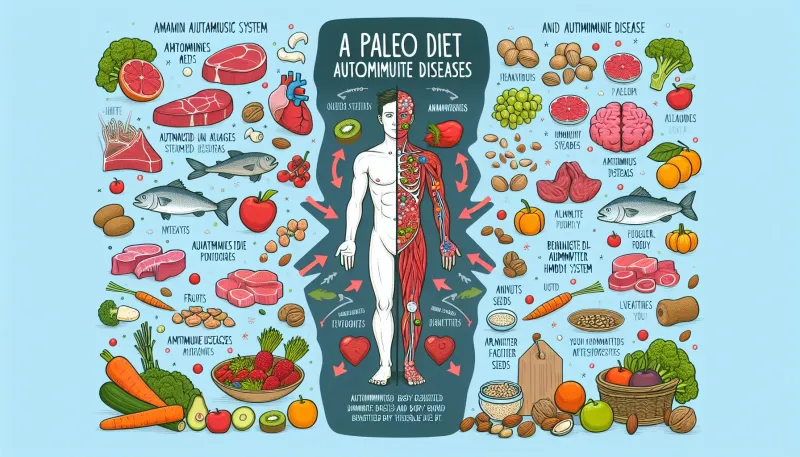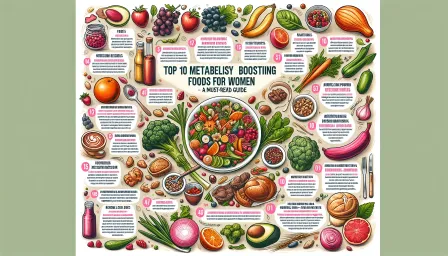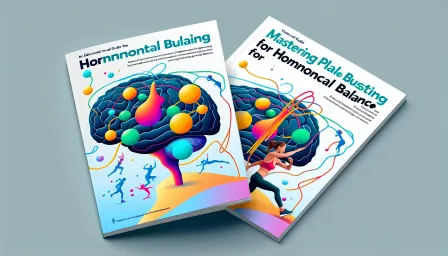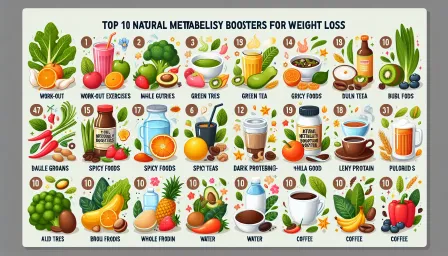How the Paleo Diet Can Help Manage Autoimmune Diseases

Discover how the Paleo diet can help manage autoimmune diseases. Learn about the benefits, potential mechanisms, and practical tips for incorporating Paleo principles into your lifestyle.
The Paleo diet has gained significant attention for its potential health benefits, including its role in managing autoimmune diseases. Autoimmune conditions are characterized by the immune system attacking the body's own tissues, leading to chronic inflammation and various symptoms that can significantly impact quality of life. This article explores how the Paleo diet can help manage autoimmune diseases, offering insights into its principles, benefits, and practical application.
Understanding Autoimmune Diseases
Autoimmune diseases encompass a broad range of conditions where the immune system mistakenly targets the body’s own cells. Common examples include rheumatoid arthritis, lupus, multiple sclerosis (MS), and Hashimoto's thyroiditis. These conditions can cause diverse symptoms such as joint pain, fatigue, and digestive issues.
The Basics of the Paleo Diet
The Paleo diet, also known as the Paleolithic or “caveman” diet, is based on the presumed dietary patterns of our prehistoric ancestors. It emphasizes whole, unprocessed foods and excludes grains, legumes, dairy, and refined sugars. The core principles involve consuming lean meats, fish, fruits, vegetables, nuts, and seeds.
Nutrient-Rich Foods
The Paleo diet focuses on nutrient-dense foods, which are essential for maintaining overall health and potentially alleviating symptoms associated with autoimmune diseases. Key components include:
- High-quality proteins: Meat, fish, and eggs provide essential amino acids and other nutrients important for tissue repair and immune function.
- Healthy fats: Avocado, nuts, seeds, and oils like olive and coconut oil offer anti-inflammatory benefits.
- Vegetables and fruits: Rich in vitamins, minerals, and antioxidants that support immune health and reduce oxidative stress.
How the Paleo Diet May Benefit Autoimmune Diseases
Emerging research and anecdotal evidence suggest several mechanisms through which the Paleo diet may aid in managing autoimmune conditions:
Reducing Inflammation
Chronic inflammation plays a critical role in autoimmune diseases. The Paleo diet's emphasis on anti-inflammatory foods, such as omega-3 fatty acids and antioxidants from fruits and vegetables, can help reduce inflammation and mitigate symptoms.
Improving Gut Health
The relationship between gut health and autoimmune diseases is well-documented. A healthy gut can help regulate the immune system and prevent autoimmunity. The Paleo diet promotes a healthier gut microbiome by eliminating processed foods and incorporating fibrous vegetables, which support gut flora and integrity.
Elimination of Potential Triggers
Foods such as gluten, dairy, and refined sugars are common triggers for many individuals with autoimmune diseases. By excluding these from the diet, the Paleo approach may help reduce immune reactivity and flare-ups.
Practical Tips for Adopting the Paleo Diet
Transitioning to a Paleo diet can be challenging but rewarding. Here are some practical tips to help you get started:
Start with Meal Planning
Plan your meals around Paleo-friendly foods. Create a weekly menu that includes lean meats, fish, plenty of vegetables, and healthy fats.
Gradual Transition
A sudden shift to the Paleo diet may be overwhelming. Aim for a gradual transition by slowly eliminating non-Paleo foods while increasing your intake of approved foods.
Focus on Whole Foods
Opt for whole, unprocessed foods to maximize nutrient intake and minimize potential inflammatory compounds.
Stay Hydrated
Proper hydration is crucial for overall health and can help support the body's natural detoxification processes.
Conclusion
While more research is needed to fully understand the impact of the Paleo diet on autoimmune diseases, the current evidence and numerous testimonials suggest that it can be a valuable approach for managing symptoms and improving quality of life. By focusing on whole, nutrient-dense foods and eliminating potential triggers, the Paleo diet offers a promising strategy for those seeking to mitigate the effects of autoimmune conditions.
As with any dietary change, it's essential to consult with a healthcare professional before starting the Paleo diet, especially if you have underlying health conditions or are taking medication.



























